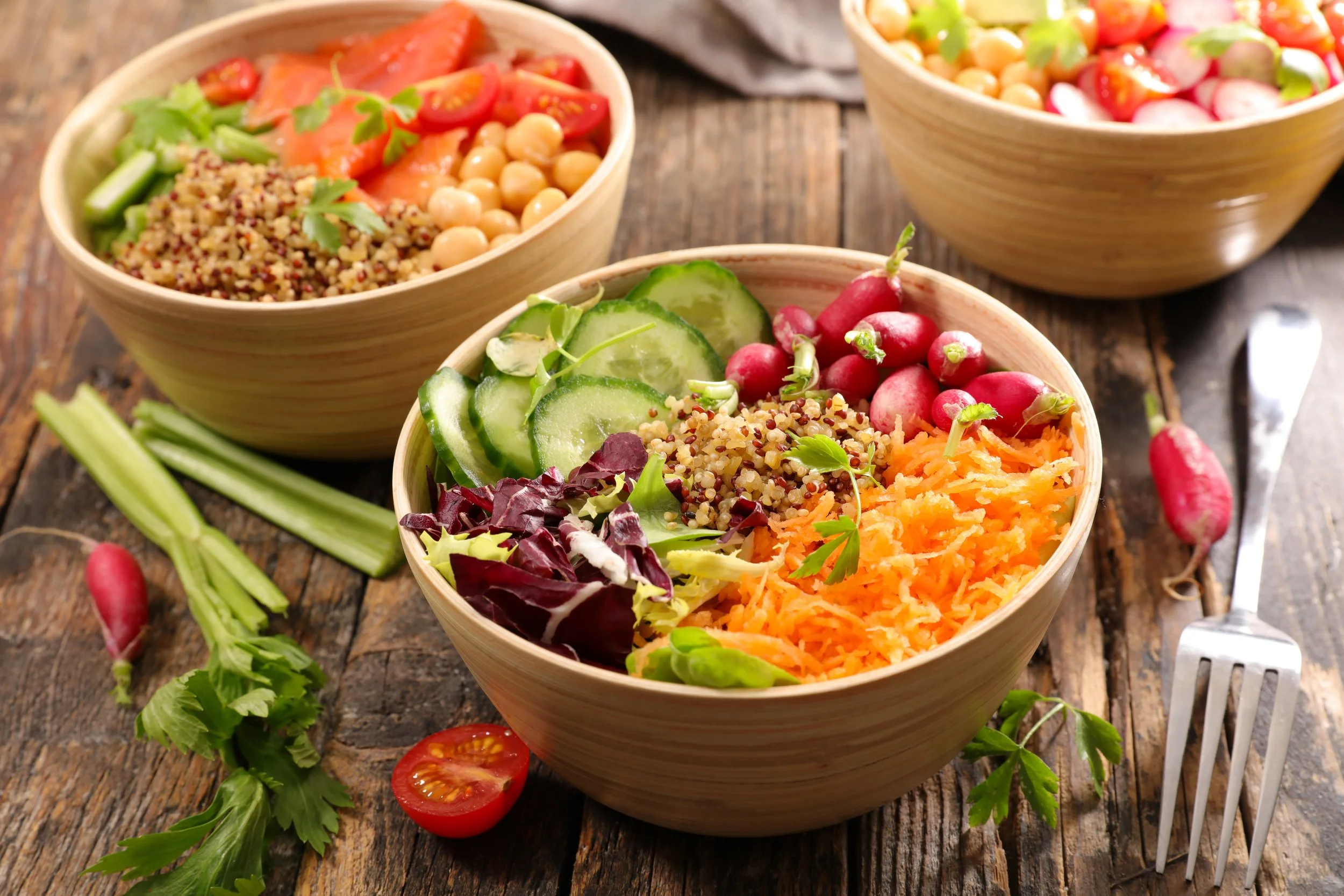Vegetarian, Vegan, and Plant-Based Diets – What’s the Difference?
By Kelly Morgan, Ph.D., M.B.A.
Chair, Fundraising and Marketing Committee
The popularity of cooking reality shows in recent years has brought about more discussions than ever before about the topic of food. Food as nourishment, fuel, and sustenance. Food simply for eating and taste enjoyment. Even food as art!
But, included in these discussions are various thoughts and ideas about what food people should and should not be consuming – and numerous reasons as to why.
And it’s not just about what food people enjoy eating, but which foods are healthy and unhealthy, and which foods are considered by some to be acceptable and unacceptable to eat.
These days, there seems to be so many factors involved in deciding what people should eat. Some people base their decisions on health reasons, while some factor in religion, ethics (such as animal rights), and even politics into their decisions.
This has resulted in numerous types of diets and lifestyles being developed, and the varied terminology being used can certainly be confusing. Some of the information clouding our minds are the differences between Vegetarian, Vegan, and Plant-based diets.
So what are the differences between these diets? Well, let’s jump right in and get the FAQs on these 3 similar, yet different eating lifestyles!
Vegetarian
Vegetarians consume plant-based foods but generally eliminate meat, poultry, fish, and shellfish from their meals. However, many vegetarians also consume eggs, dairy products (e.g., milk, cheese, butter, yogurt), and honey.
There are several different types of Vegetarian diets including:
Lacto-ovo vegetarian - eats dairy and eggs
Lacto-vegetarian - eats dairy
Ovo-vegetarian - eats eggs
Pesco-vegetarian - eats fish
Vegan - no animal products or byproducts
Fruitarian - Yep, just fruit! Nope, don’t do that.
Vegan
Veganism is the strictest of the vegetarian diets. Vegans only consume food from plant sources, such as vegetables, grains, legumes, fruits, seeds, and nuts. They do not eat food that is animal-derived, which means no meat, dairy, eggs, or honey.
In addition, vegans generally don’t use or own products that contain anything made from an animal (e.g., leather, silk, wool, gelatin, beeswax) – this includes clothing, shoes, personal care products (e.g., shampoo, make-up), furniture, and even cars that have leather interiors.
Plant-based
People living a plant-based diet or lifestyle focus on fresh produce – as in, they only consume whole plant foods. This includes unprocessed or minimally processed vegetables, fruit, whole grains, legumes, beans, nuts, and seeds.
There are generally no restrictions in regards to buying leather and other goods made from animal products.
Still a little confused?
Here is an example: French fries are vegetarian/vegan but are not considered to be plant-based because french fries don’t resemble the original plant form of the potato.
All of these forms of eating tend to be low in saturated fat and cholesterol and contain high amounts of vitamins, minerals, and fiber. However, many believe that these diets lack protein, calcium, and other nutrients necessary for a truly healthy and balanced lifestyle. Therefore, if you are following any of these diets, you might want to consider taking high quality food-based supplements to compensate for the nutrients you may be missing in your diet.
If you’re thinking about adopting any of these lifestyles, or any type of diet that involves eliminating entire food groups, perhaps consider your reasons for switching - and ask yourself a these questions:
Is this change realistic and doable for me on a long-term basis? Is it a good fit for me health-wise? Do I have the support of key people in my life?
Because this would be such a major lifestyle change, consider starting off slowly and consulting a nutrition professional before deciding if such a change in diet is right for you.

